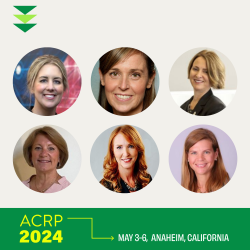This is a sponsored message.
The time required to finalize contracts and budgets is among the most pressing challenges in clinical trials. Sponsors, contract research organizations (CROs), and sites all identify this as a significant hurdle, and one that leads to costly delays and mounting frustrations. It does not have to be that way. Deploying these five strategies can make the contract negotiation process more pleasant and efficient for all stakeholders.
- Leverage Existing Language
Look for opportunities to use a template or another source of agreed-upon language for a starting point, including:
- Previous clinical trial agreements (CTAs) between the parties.
- Industry-recognized templates, such as the accelerated clinical trial agreement (ACTA) and WCG’s MAGI CTA template.
Bring this up before negotiations begin. If the site and the sponsor are amenable, building contracts using existing language can accelerate the process and avoid having repeat discussions on provisions when the parties’ positions have not changed. Duplicating the process just to get to the same resolution is a common pain point associated with contract negotiations. Starting with a template streamlines the process, saves time, and allows negotiators to spend their energy on key contract provisions and budget terms.
This approach is not without challenges. For example, some sponsors believe that ACTA’s intellectual property language provides insufficient coverage for their ownership interests and will opt to use their preferred terms. Additionally, some European sponsors find the ACTA’s approach toward GDPR (General Data Protection Regulation) lacking and will insist on more extensive GDPR language. Neither of these preclude the use of templates; it just means some terms, but not all, may require adjustments before final agreements are reached.
- Prioritize Active Negotiations
Many contract negotiations are delayed because they lose their place in someone’s queue. By prioritizing review of those contracts which are nearly completed ahead of new contracts, you can shorten negotiation timelines and prevent overaccumulation of contracts on your to-do list.
Consider someone on the contracts team at either a sponsor or a site. They may have five new contracts to start and 20 ongoing negotiations in their queue. The most effective method to ensure CTAs are not delayed by losing their place in the queue is to focus immediate efforts on those negotiations that are close to a final agreement. This simple shift will ensure that those contracts with one or two provisions left to agree on are not waiting behind the first review of an entirely new contract.
In other words, do not automatically relegate incoming tasks to the bottom of the priority list; focus on reducing the size of your to-do list by resolving those contracts that can be finalized quickly. This approach can have a significant impact on overall CTA negotiation turnaround timelines.
- Calls, Not Comments: Know when to Pick Up the Phone
Contracts are routinely executed without the negotiators talking. That can result in incalculable amounts of wasted time.
Too often, negotiations happen in the comment bubbles and redlines. This method, while convenient, is inefficient; it often leads to prolonged discussions, with each party merely deleting and replacing content. Further, comments are often not negotiations at all but statements saying, “We can’t accept your language; here’s our language.” That is not negotiation, and it certainly does not constitute collaboration.
When you talk to another person on the phone, it allows both parties to clarify points in real-time. The conversation leans more toward collaborative problem-solving than combative dispute. Creating a human connection with the person on the other end of the phone makes them more than just an opposing opinion in an e-mail. Speaking on the phone allows for empathy and shared compromise to flow naturally.
It works both for simple issues—which can be resolved by one, quick phone call—and more complex ones that may take a few hours on the phone. For example, a site and sponsor may be in the second round of negotiations on a contract that is heavily red-lined with upward of 50 open items. In this situation, it can often take a full day to review that contract and send back edits, only to have them rejected and reverted to the previous terms. A phone call allows all parties to get on the same page earlier in the process and bypass this inefficient back and forth.
- Playbook Adaptability
Having an adaptable CTA playbook will help set your contracts team up for successful contract negotiations. Adopting overly rigid contract language standards is one of the biggest roadblocks to efficient contract negotiation. This is common among sites, sponsors, and CROs. The key to an effective CTA playbook is ensuring your playbook will work within a wide variety of CTA templates.
Focus on key words, phrases, and concepts, with examples of agreeable text to help guide the contract reviewer. Try to avoid mandating long blocks of text that are required verbatim in all your contracts. Allowing your contracts team to work key ideas and terms into the existing template language will lead to more productive conversations and negotiations with the opposing side. Meanwhile, offering a bit of wiggle room helps avoid excessive questions and escalations as contract negotiations continue.
The goal is to empower your contract reviewers to make the existing terms meet your needs, rather than attempting to replace the existing terms entirely. Strategically drafting your CTA playbook is an important first step to accomplishing this goal.
- Work with an Established Site Network
Working with a well-structured network like the WCG Site Network can provide sponsors and CROs with a single point of contact throughout the site selection and study start-up process, including contract and budget negotiations. The negotiation timeline can be significantly reduced from repeat association between sponsor/CRO and the network, in addition to the sponsor’s ability to activate multiple network sites through a single negotiation.
Conclusion
Too often, the contract is the root cause of costly delays in study start-up and the last roadblock preventing the advancement of clinical trials that can ultimately provide patients access to life-changing treatments. Implementing these strategies can significantly reduce contract negotiation timelines, and working with an established site network effectively aligns sites, sponsors, and CROs with a trusted partner who applies these same strategies to rapidly execute contracts and accelerate study start-up.
About WCG’s Site Network
WCG has a network of more than 350 sites and 1,100 principal investigators. WCG stands at the nexus of sponsors, CROs, sites, patients, and other stakeholders, giving them unparalleled insights. This rich perspective allows WCG to craft contracts and budgets acceptable to both parties, focusing on the important goal of getting the study started quickly.
WCG Site Network offers a point of contact with sites who is an expert, seasoned negotiator who prioritizes client timelines to reduce back-and-forth inefficiencies. With hundreds of contracts executed annually, WCG’s playbook is tested and proven. The goal is to not be overly relaxed or overly stringent—you want to be nimble, reasonable, and informed.
WCG Site Network significantly streamlines the negotiation process and reduces start-up timelines by removing the need for a sponsor to negotiate multiple contracts and budgets through the use of a single template and one budget.
Blog Author: Collin Gruener, Operations Manager, WCG Site Network



